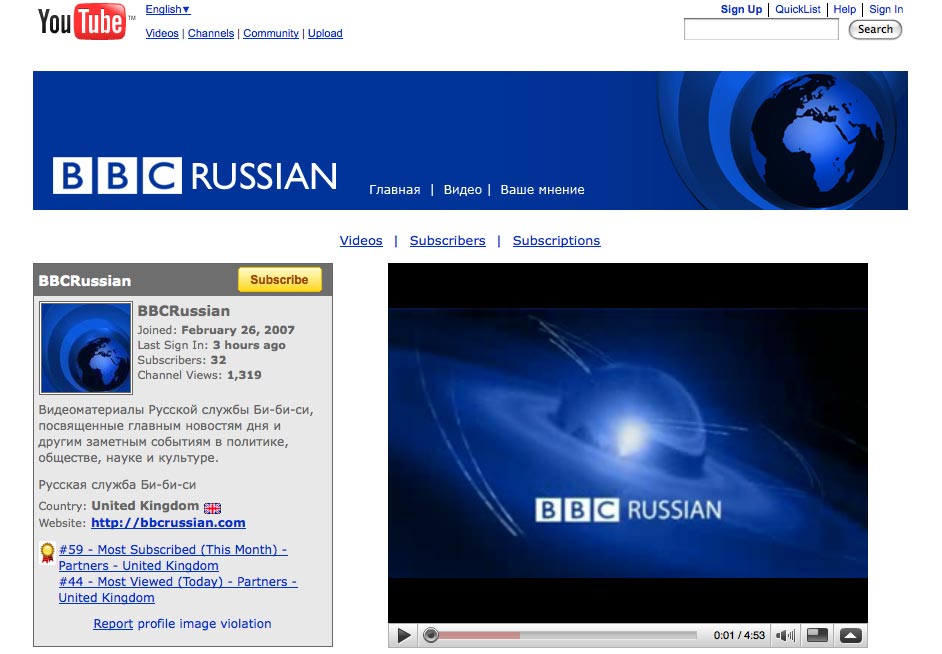Jeni Barnett, the LBC radio presenter at the centre of the Goldacre/LBC case, has received ‘hundreds of extremely personal and abusive comments,’ her agent, Robert Common, confirmed to Journalism.co.uk today.
“[The comments] do not address the debate about the use of MMR and that is the reason for taking the comments off Jeni’s website,” Common said.
As Journalism.co.uk reported yesterday, support for Goldacre’s complaint against LBC had gathered fast, with high-profile figures such as Stephen Fry lending support to Goldacre. However, as Ben Goldacre has now made clear in a new blog post he does not want people to direct abuse at Jeni Barnett in such a personal manner.
“Do not send Jeni abusive emails, it’s not nice or helpful,” Goldacre wrote on his site, after being contacted by the programme director at LBC.
“I am sorry if people have sent unpleasant emails. I would want no part in that (…),” Goldacre said in a reply to the programme director.
The incident comes after a timely piece published by MediaGuardian on Monday, which looks at what happens when journalists face personal online attack.
Barnett’s agent, Robert Common, told Journalism.co.uk that he has “personally been very shocked at the hurtful level of criticism and and its very personal and threatening nature. LBC have aired the MMR debate several times in the last four weeks on other presenters’ shows where the debate has been continued.
“Jeni would never wish to restrict discussion on this topic or indeed any other, however, when that debate encourages threats and abuse it is impossible to do so and I have advised [her] not to continue to make any further comments,” Common said.
Update to post #1, 12/02/2009: In response to questions and issues raised in comments below this post Journalism.co.uk asked Robert Common what he meant by ‘comments’, since it has been suggested that the original comments on Barnett’s blog were not personal or abusive (e.g Andy / John ED’s comments below). Robert Common, Jeni Barnett’s agent, told Journalism.co.uk: “The comments/emails [to which he previously referred] are the ones that have been unpublished.”
Update #2, 12/02/2009: Journalism.co.uk took the additional questions raised in the comments below this post to Robert Common:
- Why was it decided to delete inoffensive comments (as re-published by various blogs)? Will there be a way in which people can raise (inoffensive/non-personal) complaints and comments with Barnett, or will she maintain this silence, which could be said to fuelling the outrage further? It has been alleged that you have deleted blog posts as well as comments: is this true? People feel that ‘primary sources’ (such as the originally published comments and blog posts) shouldn’t just be deleted. If they are (legal reasons etc.), it should be explained why. Do you have a comment policy [for Barnett’s blog]?
Robert Common told Journalism.co.uk that he would not be making any further comment. However, he said that if commenters have specific, non-personal and non-abusive, questions or points to raise with Jeni Barnett they could email him via talent at rcmgmt.co.uk.
Update in response to comments, 12/02/2009:
[Judith Townend, comment] Thanks for all your input. I’m extremely disappointed that many commenters think Journalism.co.uk has been unbalanced in its reporting. Perhaps I should have made it clearer in the original post (though content was linked) that since Friday I have run three articles based mainly on two lengthy interviews with Ben Goldacre, which I will provide links for at the bottom of this update, including a 30 minute audio interview, in which Goldacre explains the background of the case, as well as broader issues in science journalism.
Given that Barnett had removed the comment facility on her blog I thought it was important to put the many questions being raised around the web to LBC and Barnett’s agent – for example in the posts and comments at Holford Watch and Quackometer. LBC did not want to make an on-the-record comment. Robert Common eventually agreed to make this statement on the record although said that Jeni Barnett will not make further comment herself. All I have done is report what Common said to me – and that by no means endorses or tries to prove his claim. When I do occasionally provide my own opinion on issues via this blog, or our main site, I try to make that clear. This piece was simply reporting a quote given to me.
I can do my best as a reporter to put questions to the relevant parties but it will be very difficult to find out and clarify how many or what kind of comments were submitted as we don’t have access to any unapproved comments or the emails sent to Barnett. I have contacted Common with your questions about the comments: the challenge that the original comments (now deleted) were not personal and abusive, and to clarify the distinction between emails and blog comments. I will report back here with further information, if received. Any further suggestions please don’t hesitate to leave them below. Also, if you don’t see your comments immediately appear it’s because we have a pre-moderation system, but the majority of comments will be approved as long as they don’t present any legal issues. Also, you can subscribe to new comments on this post by checking the tick box.
LINKS:
10/02/09 – Goldacre’s law: the Bad Science ‘nerd’ talks to Journalism.co.uk (with audio) http://www.journalism.co.uk/5/articles/533461.php10/02/09 -Online support for Goldacre gathers pace http://blogs.journalism.co.uk/editors/2009/02/10/online-support-for-goldacre-gathers-pace/
06/02/09 – Goldacre on the ‘intellectual property absolutists’ – LBC’s legal warning http://blogs.journalism.co.uk/editors/2009/02/06/goldacre-on-the-intellectual-property/
 As
As  The BBC has made good on its October promise to launch
The BBC has made good on its October promise to launch